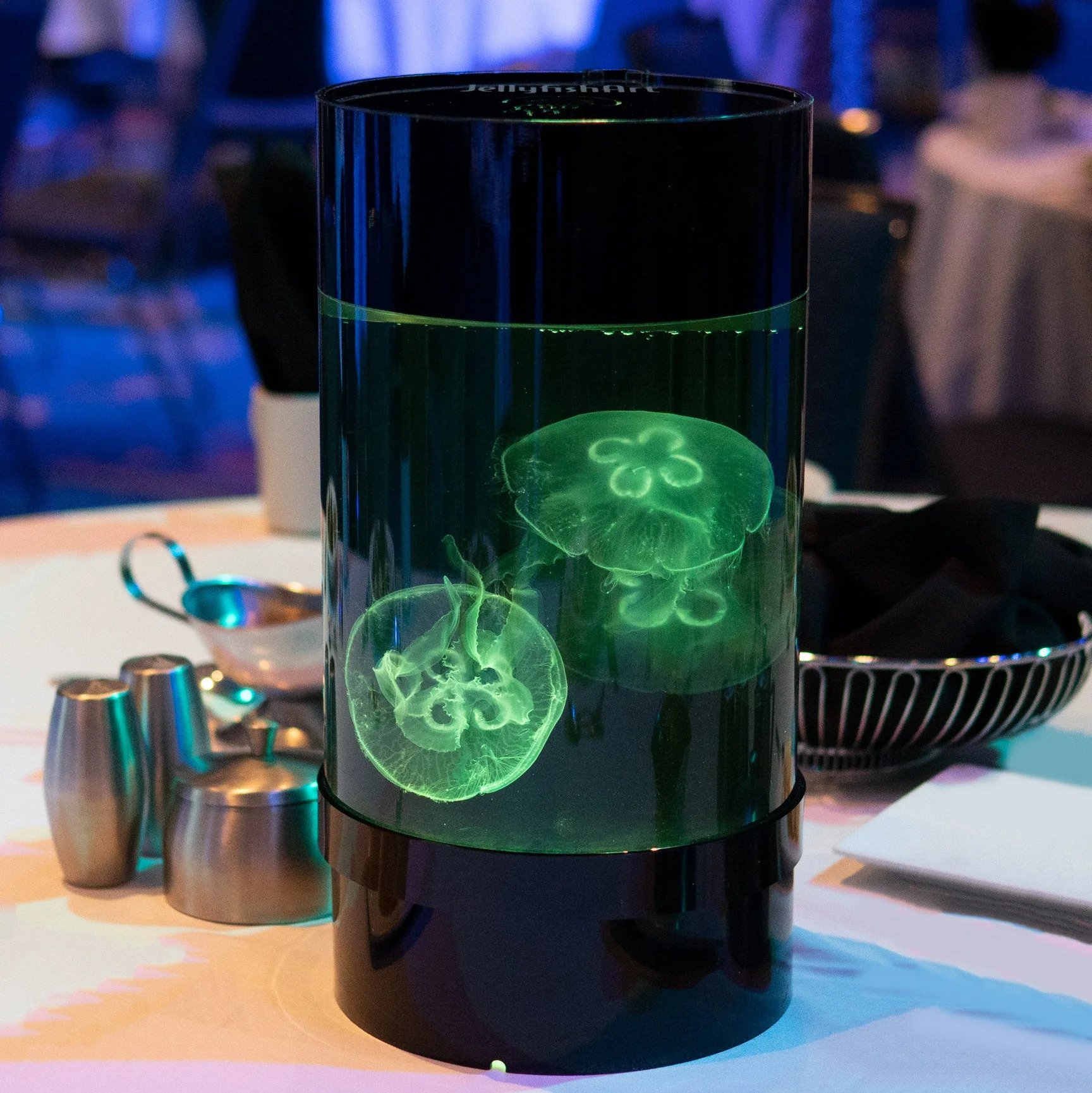Business success story: Jellyfish Art
I wrote this blog post as part of a series of interviews with people who started companies after a failed job search. The fun part about this series is that the people profiled said they are happier now than if they had landed a salaried job.
This interview is with Alex Andon, founder of Jellyfish Art, LLC.
Mr. Andon, what type of career did you have before you launched your business?
I worked at a biotech company analyzing data all day. Before my employer laid me off, it was a pretty typical 9 to 5 job working in an office.
How long did you search for a job, and how did your job search go?
I searched for about five months. I couldn’t find anything that suited my interests or skills, so I gave up. That’s when I knew it was time to start Jellyfish Art.
Interviewer note: Andon told a NY Times reporter he would rather get stung by a jellyfish than hunt for a job. I know many job searchers can relate to that!
What does Jellyfish Art do?
We sell pet jellyfish and everything you need to enjoy them. Before we started Jellyfish Art, people could enjoy viewing jellyfish at public aquariums, but it wasn't something you could do at home. You can't just put jellyfish in a traditional fish tank because they will get sucked up into the filter and liquefied.
How did you survive financially while you started your business?
It was difficult. I took out some SBA loans, but that didn’t go very far, so I needed another source of money. I had enough faith in the company to use what I had saved for graduate school, and I got some help from friends and family. I adapted my lifestyle to live as cheaply as possible.
How does your current income compare to your previous income?
My current income has far surpassed my old income. I’m working less and doubling my profits every month.
What skills and previous experience were you able to bring to your business that are helping you to succeed?
Many people thought that my degree in marine biology would help me with Jellyfish Art. Surprisingly, it has helped only a little. The skills I rely on most are strictly business related. I have always had a passion for marketing and sales, so that knowledge has been most valuable in growing the company organically. Without those skills, I would have had to rely on a lot of external sources.
What is the best part about running your business?
There are a lot of perks to running my business. Perhaps the best is being able to wake up and work in my pajamas. It’s also nice to know that I can create my schedule and work when I want.
What is the most challenging part about running your company?
Right now, the challenge has been trying to keep up with the growth of the company. It doesn’t feel uncontrollable, but sales are increasing at an exponential rate. Since I started the company, my partner and I have developed new lines of jellyfish tanks and grown out of smaller warehouses into larger ones.
What new skills did you need to learn to be a successful entrepreneur?
On a general level, the most important skill has been learning how to adapt to every situation. There are always solutions to problems, it’s just figuring out the best one. But more specifically, I have had to learn about SEO and all the online tools that make an ecommerce company successful. I did not know how tricky all that stuff is, but it is also a lot of fun.
What career advice do you have for job searchers who are considering an entrepreneurial path?
There are a few things you should know before committing to an entrepreneurial path. The first is that you must have complete confidence in your product or whatever it is you will be doing. The second is to make sure that you know your target market. Who will be your customers, how scalable is your product, and how viable is the market? Once you have that nailed down, you need resources and time, both of which are often overlooked, but very important.
Thanks, Mr. Andon!
Jellyfish Art is the leader in supplying live jellyfish and their specialized aquariums and products.
Originally published 2011-06-26 on VocationVillage.com
